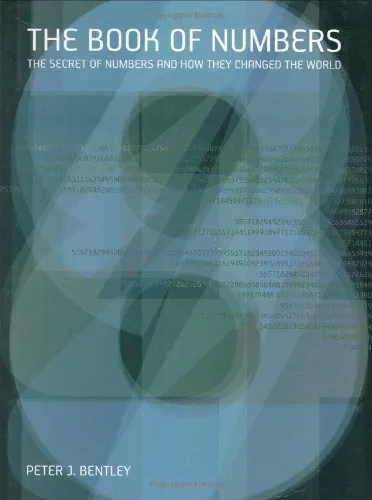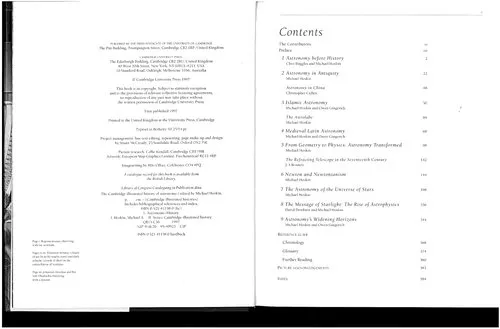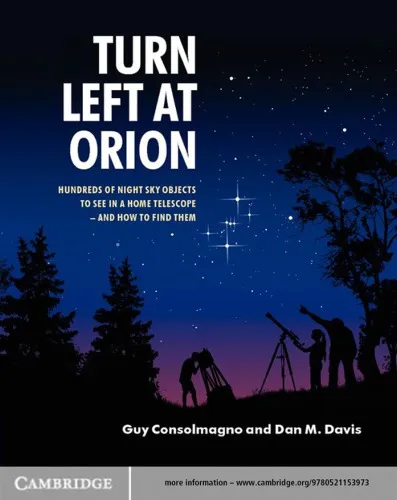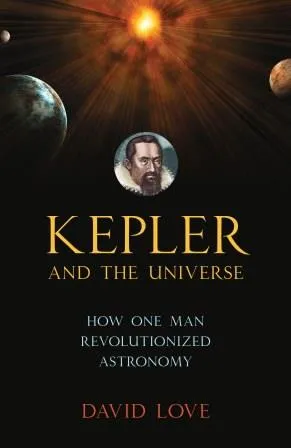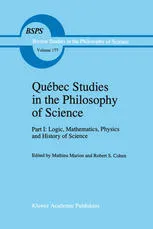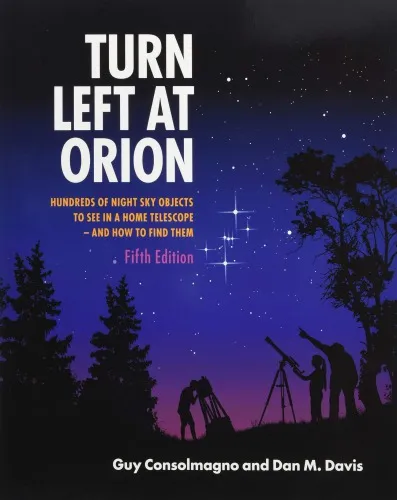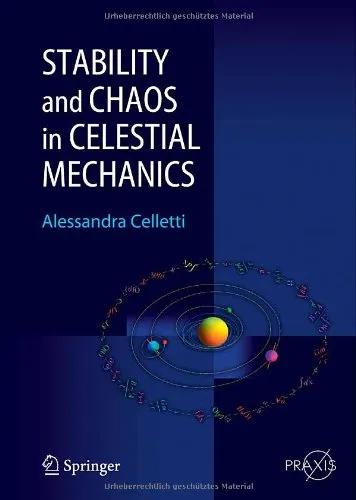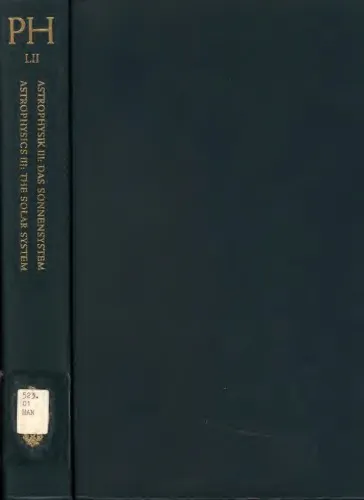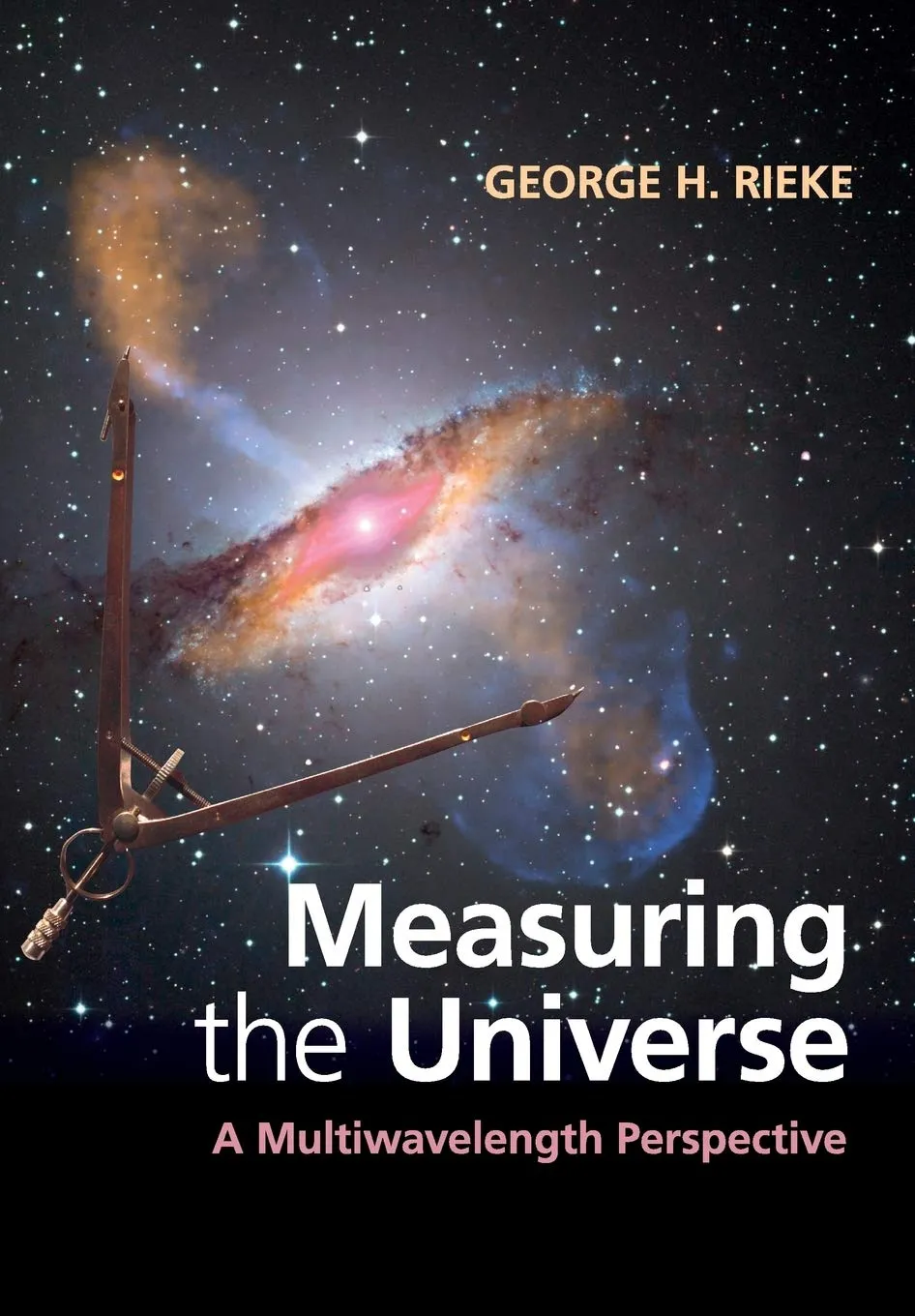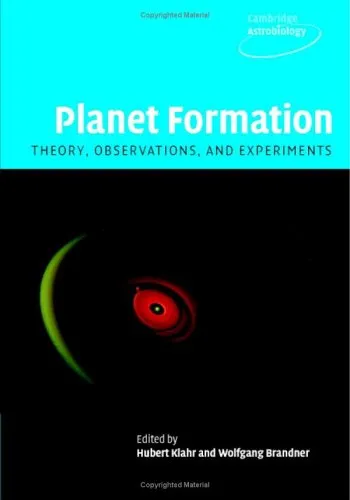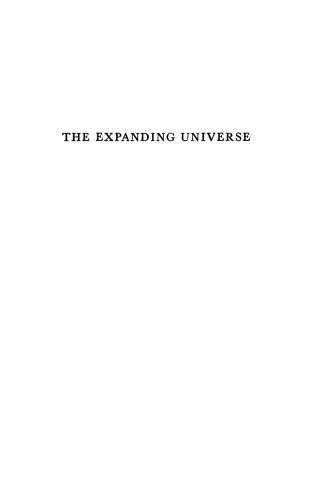Reflections on Observational Astronomy in the Medieval Islamic Period
4.5
بر اساس نظر کاربران

شما میتونید سوالاتتون در باره کتاب رو از هوش مصنوعیش بعد از ورود بپرسید
هر دانلود یا پرسش از هوش مصنوعی 2 امتیاز لازم دارد، برای بدست آوردن امتیاز رایگان، به صفحه ی راهنمای امتیازات سر بزنید و یک سری کار ارزشمند انجام بدینکتاب های مرتبط:
معرفی کتاب "Reflections on Observational Astronomy in the Medieval Islamic Period"
کتاب "Reflections on Observational Astronomy in the Medieval Islamic Period" اثری است که به بازتابهای علمی و رصدی در دوره اسلامی قرون میانه پرداخته و نگاه عمیقی به دستاوردها و نقش دانشمندان اسلامی در تکوین دانش Astronomical Observation دارد. در این کتاب، تلاش شده است تا به بررسی تحولاتِ فکری متخصصان این علم در دورهای پرداخته شود که پژوهشهای آنها پایهگذار بسیاری از کشفیات بعدی در دنیای غرب شد. این اثر نه تنها جنبههای تاریخی، بلکه کاربرد عملی مشاهدههای نجومی را نیز تحلیل نموده و نقشی محوری برای نهادینهسازی روشهای علمی در تمدن اسلامی قائل است.
خلاصهای از محتوای کتاب
در این کتاب، نویسنده تلاش کرده است تا سیر تحولات علمی و مشاهدهای در دانش Astronomical Observation در تمدن اسلامی را به دقت بازگو کند. کتاب شامل مباحثی بر پایه رویکرد تاریخی و تحلیلی است که در آن نقش مهم ابزارهای رصدی مانند astrolabe و armillary sphere بررسی میشود. همچنین، به فعالیتهای گسترده دانشمندانی چون البتانی، ابن هیثم، و نصیرالدین طوسی پرداخته شده که نه تنها اندیشههای تحلیلی داشتند، بلکه توانستند روشهای کاربردی را بهبود بخشند. نویسنده در این اثر تاکید دارد که غیر از جنبه نظری، این مشاهدات و فعالیتها به ایجاد زیربنای دقیق محاسباتی برای مکان و حرکت اجرام آسمانی کمک کرده است.
نکات کلیدی کتاب
- معرفی و تحلیل ابزارهای مهم رصد نجوم همچون astrolabe و sextant در دوره اسلامی.
- نقش مشاهدههای دقیق در تصحیح مدلهای نجومی یونانی و پیشرفت علم Astronomical Observation در جهان اسلام.
- بررسی مهمترین رصدخانههای دوره میانه اسلامی همچون رصدخانه مراغه.
- ارائه دیدگاههای تحلیلی نسبت به تعاملات علمی میان جهان اسلام و تمدنهای دیگر.
نقلقولهای معروف از کتاب
"مشاهده دقیق طبیعت چیزی جز یک دریچه کامل به سوی معرفت نیست که دانشمندان قرون اسلامی به خوبی آن را گشودهاند."
"بیش از آنکه به ابزارها بیندیشیم، اهمیت روش علمی و تجزیهوتحلیل دقیق است که دانش را پیش میبرد."
چرا این کتاب اهمیت دارد؟
اهمیت "Reflections on Observational Astronomy in the Medieval Islamic Period" فراتر از بازگو کردن گذشتهی علمی تمدن اسلامی است. این کتاب تلاشی است برای یادآوری اصول بنیادین روش علمی که بر پایه مشاهده گذاشته شده و نقش تعیینکنندهای در پیشرفتهای علمی مدرن ایفا کردهاند. به کمک این اثر، خوانندگان میتوانند بفهمند که چگونه دانشمندان اسلامی با چالشهای علمی زمان خود روبرو شدند و راهحلهایی برای پیشرفت علم ارائه کردند. به علاوه، این اثر به تقویت هویت علمی در جوامع مسلمان و ارج نهادن به میراث نجومی گذشتگان کمک میکند.
Introduction
Astronomy, one of the oldest sciences known to humankind, owes a great deal of its development to the medieval Islamic period. "Reflections on Observational Astronomy in the Medieval Islamic Period" delves into this fascinating history, highlighting the intellectual contributions, technological advancements, and cultural motivations of Muslim astronomers from the 8th to the 15th centuries. In this book, I examine the profound ways in which these scholars not only preserved ancient knowledge but also innovated their methodologies, transforming the field of observational astronomy.
Far from being a mere collection of historical facts, this book seeks to transport its readers to an intellectual world where the study of the stars intertwined with religion, philosophy, and practical science. It is a tribute to the brilliance and originality of medieval Islamic thinkers who observed the heavens, developed intricate instruments, and laid the groundwork for much of the astronomy practiced today. The text highlights the importance of connecting observational skill with systemic inquiry — an idea that remains relevant in modern scientific practices.
Detailed Summary of the Book
The book is divided into several thematic chapters, each focusing on a key aspect of observational astronomy during the medieval Islamic period. Early on, it introduces the reader to the historical and cultural context in which astronomy thrived, demonstrating how Islamic empires valued science as a cornerstone of both governance and faith. These early chapters also discuss the translation movement, which brought Greek, Indian, and Persian astronomical knowledge into Arabic, fostering a rich intellectual environment.
The subsequent chapters explore significant advancements in astronomical observation, covering developments in tools such as the astrolabe, quadrants, and armillary spheres. I delve into the techniques Islamic astronomers employed to achieve exceptional accuracy, such as the construction of observatories in cities like Baghdad, Maragha, and Samarkand, and their meticulous cataloging of celestial objects.
By weaving stories of astronomers like Al-Battani, Ibn al-Shatir, and Ulugh Beg, the book captures the diversity of methods and theories that emerged in this era. Additionally, it sheds light on the integral relationship between astronomy and timekeeping, explaining how lunar calculations informed the Islamic lunar calendar and ritual practices. The text concludes by tracing the legacy of medieval Islamic astronomy in the broader history of science, demonstrating its influence on the European Renaissance.
Key Takeaways
- The medieval Islamic world played a pivotal role in preserving and expanding ancient astronomical knowledge.
- Innovative observational techniques and instruments developed in this period laid the groundwork for modern astronomy.
- Interdisciplinary connections between astronomy, mathematics, philosophy, and religion were crucial for the evolution of Islamic science.
- Key figures such as Al-Battani and Ibn al-Shatir developed theories that challenged and refined earlier classical models of the cosmos.
- The construction of observatories like those in Maragha and Samarkand was central to facilitating precise astronomical measurements.
These takeaways emphasize not just the practical contributions of Islamic astronomers but also their philosophical and cultural significance. They inspire us to reconsider the interconnected nature of scientific disciplines and the global development of knowledge.
Famous Quotes from the Book
"Under the night skies of Baghdad and Samarkand, humanity’s ancient curiosity for the stars found new precision, blending observation with creativity."
"Islamic astronomy was much more than a bridge to the Renaissance; it was a dynamic and innovative field that reshaped the very practice of observing the heavens."
"At the heart of medieval Islamic astronomy lay not just the pursuit of knowledge, but also a profound reverence for the cosmos as a reflection of divine order."
Why This Book Matters
"Reflections on Observational Astronomy in the Medieval Islamic Period" is not just a history book; it is a celebration of human ingenuity and intellectual collaboration. By shedding light on a lesser-known but monumental chapter in the history of science, this work challenges Eurocentric narratives that often overlook crucial contributions from the Islamic world. The book reminds us that the progress of human understanding depends on the cumulative efforts of diverse cultures and civilizations.
Furthermore, in a modern world dominated by specialized and siloed scientific disciplines, the integrated approach of medieval Islamic astronomers serves as an inspiring model. Their work underscores the value of interdisciplinarity, reminding us that real innovation often arises at the intersections of different fields. Finally, this book honors the curiosity and determination of those early astronomers, who, with limited resources, sought to map the universe and uncover its secrets.
Whether you are an astronomy enthusiast, a student of history, or a curious reader, this book offers invaluable insights into a time and place where science flourished against all odds, leaving an indelible mark on our collective quest for knowledge.
دانلود رایگان مستقیم
شما میتونید سوالاتتون در باره کتاب رو از هوش مصنوعیش بعد از ورود بپرسید
دسترسی به کتابها از طریق پلتفرمهای قانونی و کتابخانههای عمومی نه تنها از حقوق نویسندگان و ناشران حمایت میکند، بلکه به پایداری فرهنگ کتابخوانی نیز کمک میرساند. پیش از دانلود، لحظهای به بررسی این گزینهها فکر کنید.
این کتاب رو در پلتفرم های دیگه ببینید
WorldCat به شما کمک میکنه تا کتاب ها رو در کتابخانه های سراسر دنیا پیدا کنید
امتیازها، نظرات تخصصی و صحبت ها درباره کتاب را در Goodreads ببینید
کتابهای کمیاب یا دست دوم را در AbeBooks پیدا کنید و بخرید
1389
بازدید4.5
امتیاز0
نظر98%
رضایتنظرات:
4.5
بر اساس 0 نظر کاربران
Questions & Answers
Ask questions about this book or help others by answering
No questions yet. Be the first to ask!


